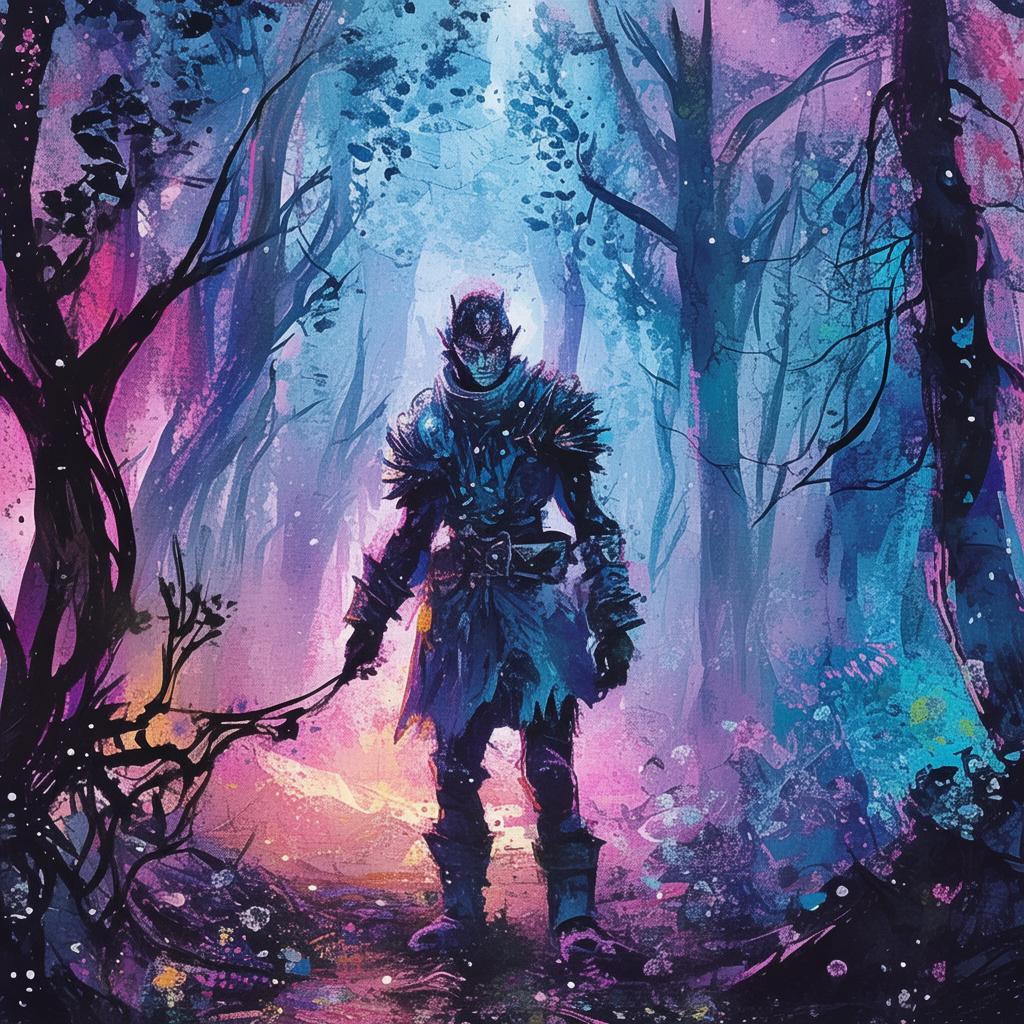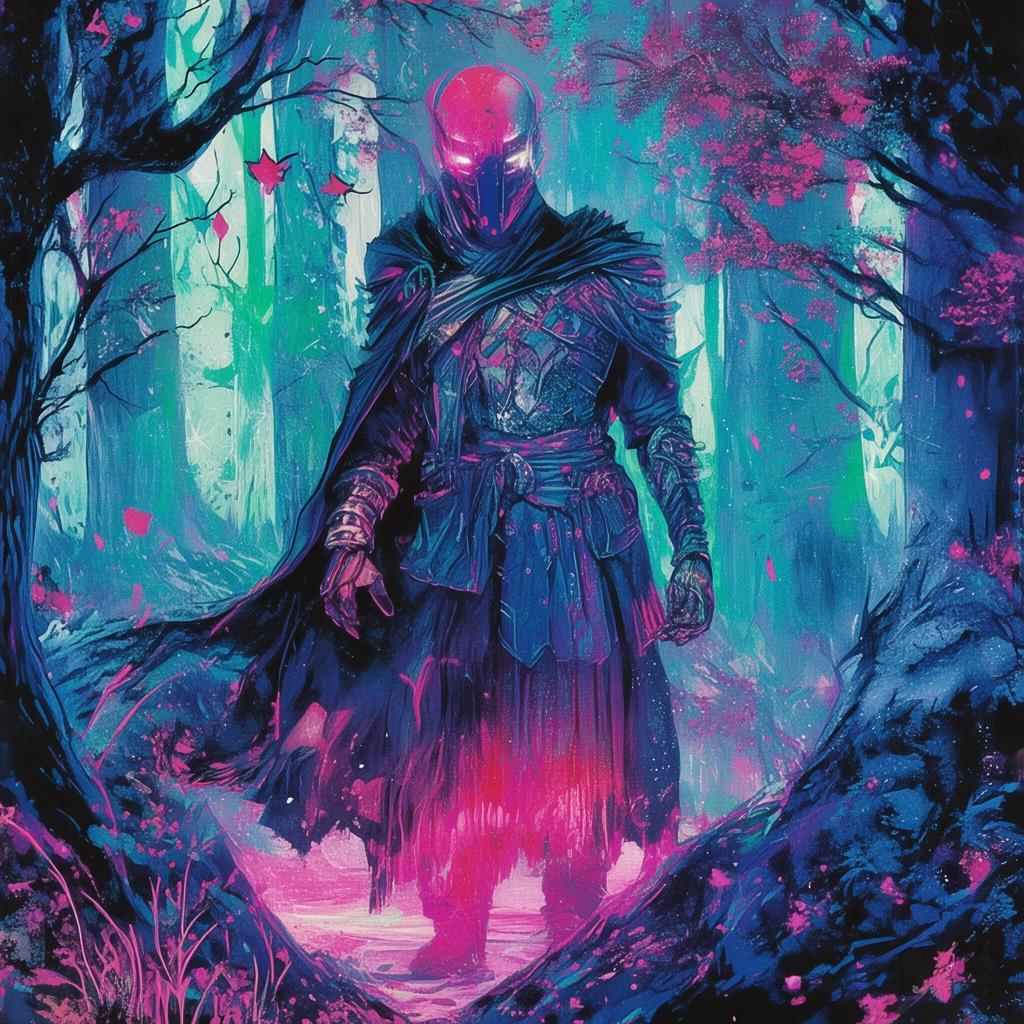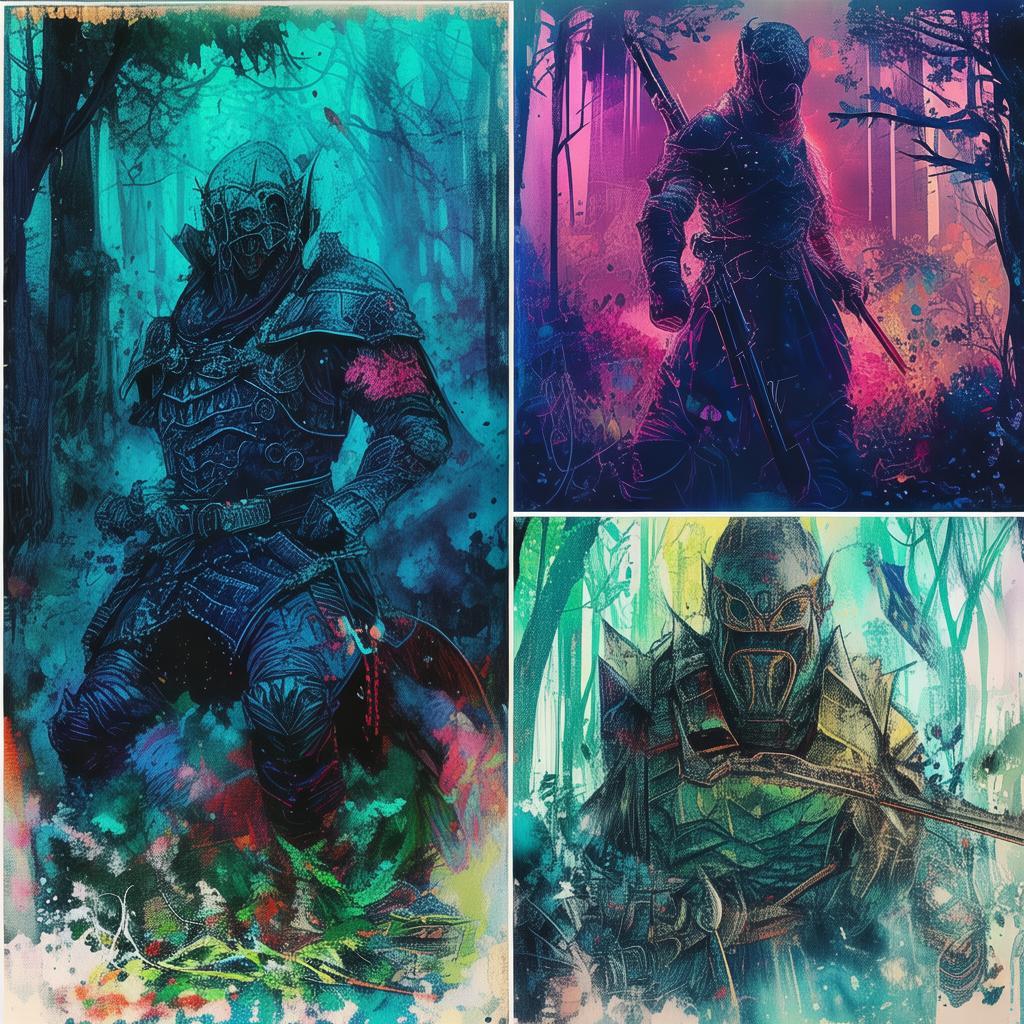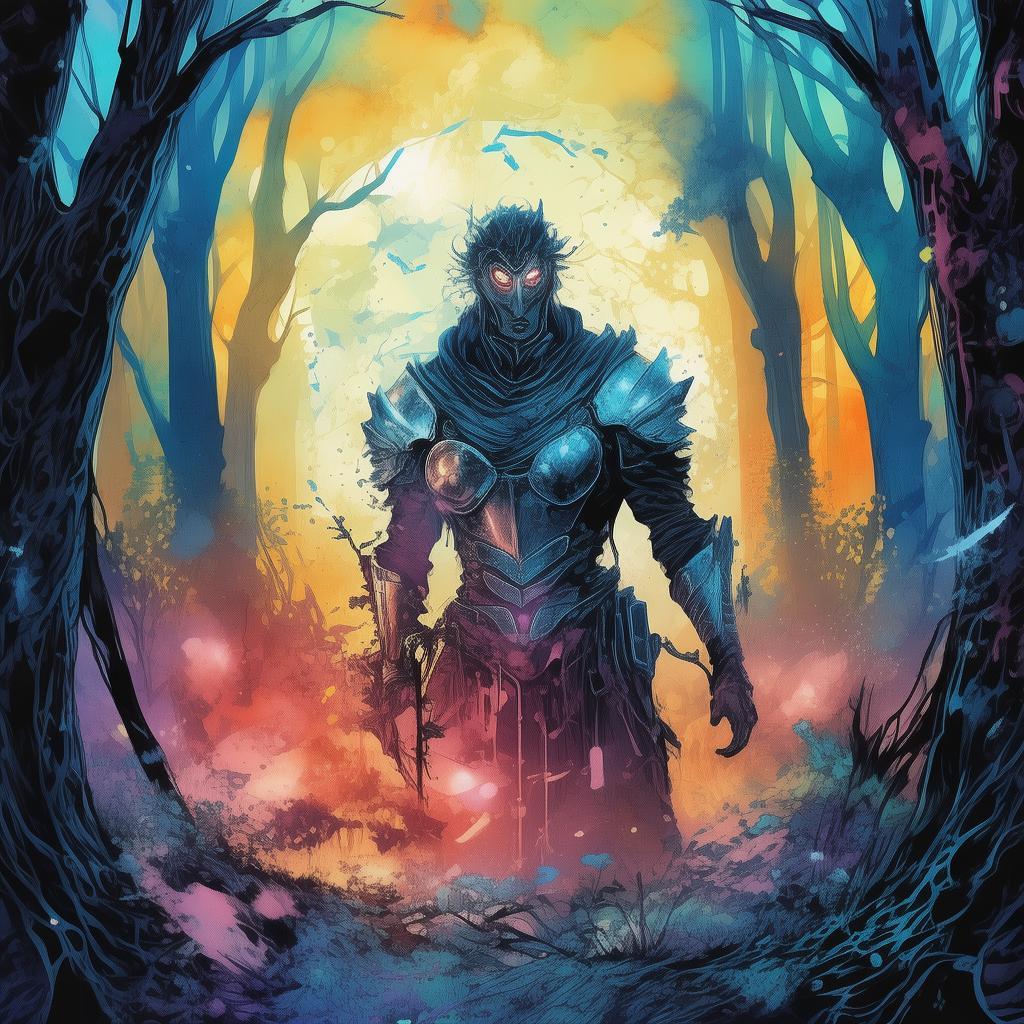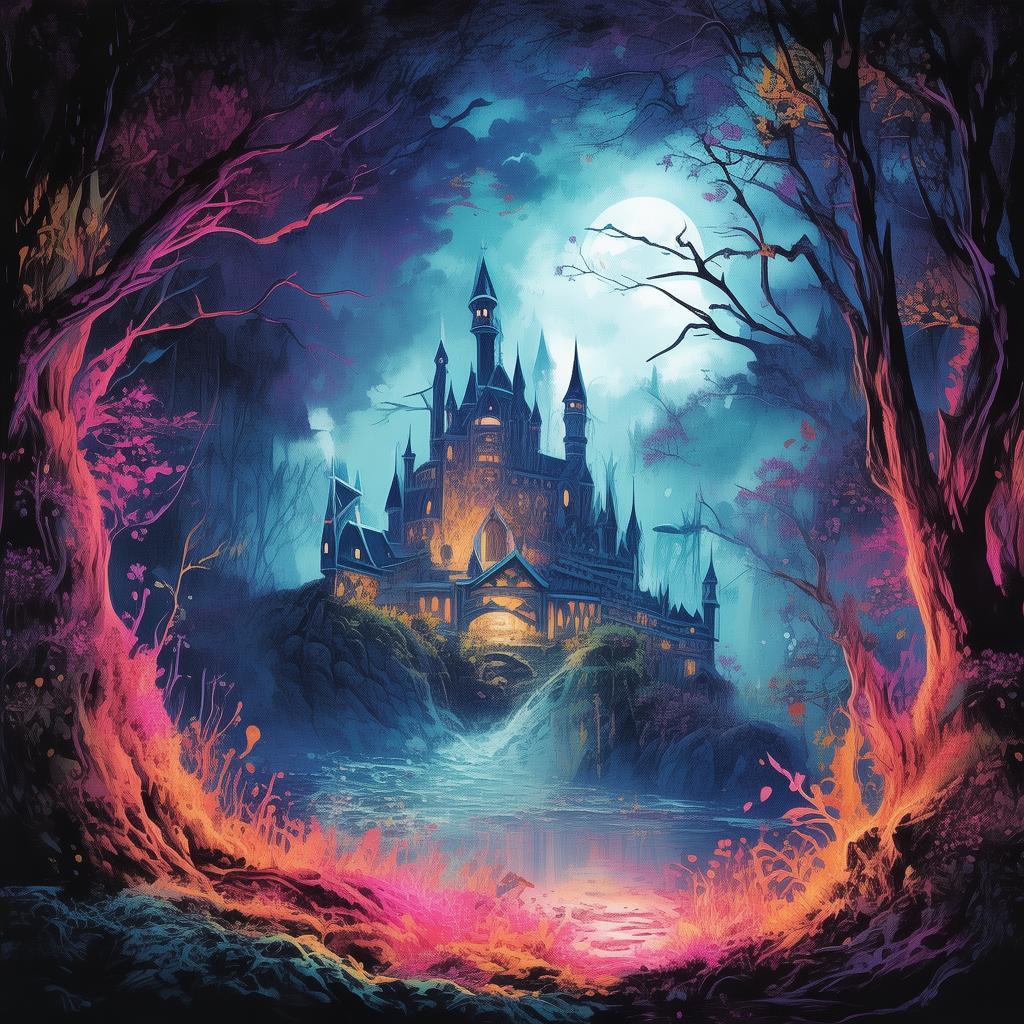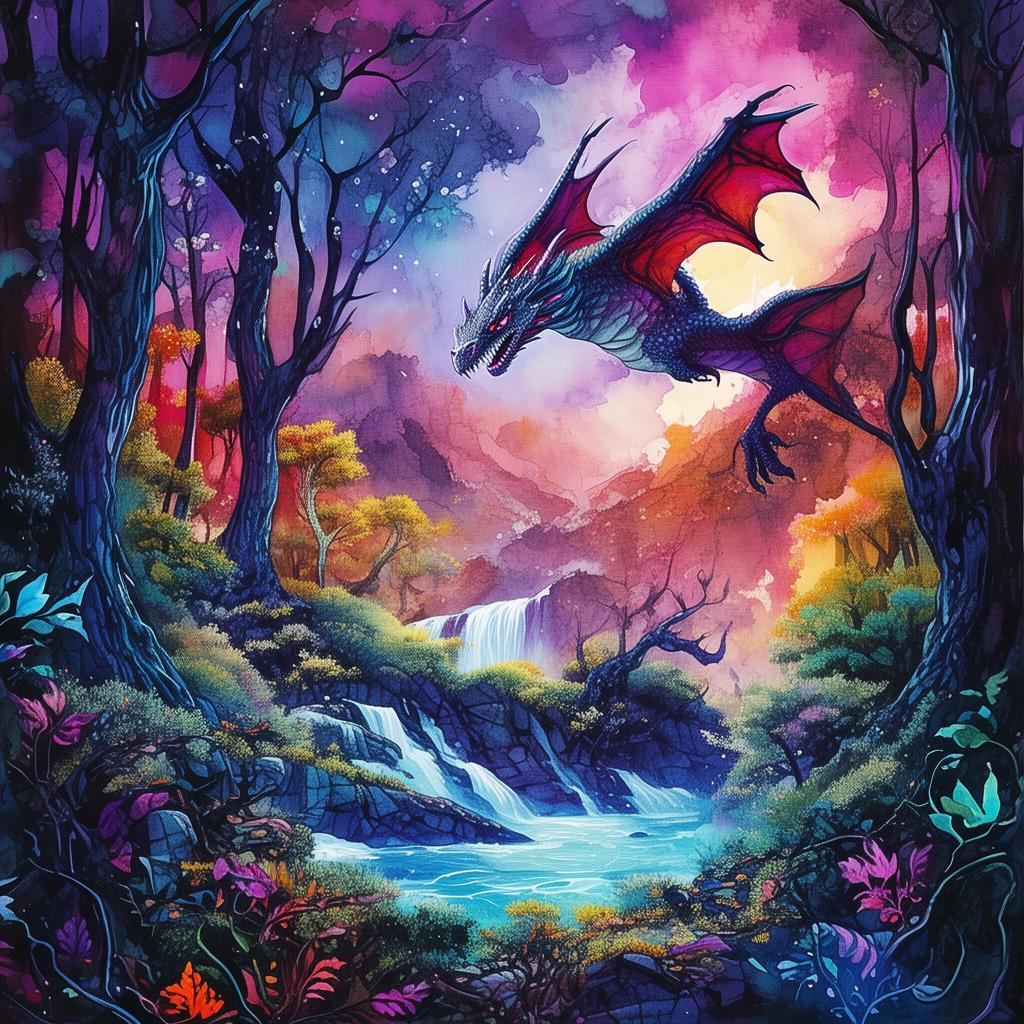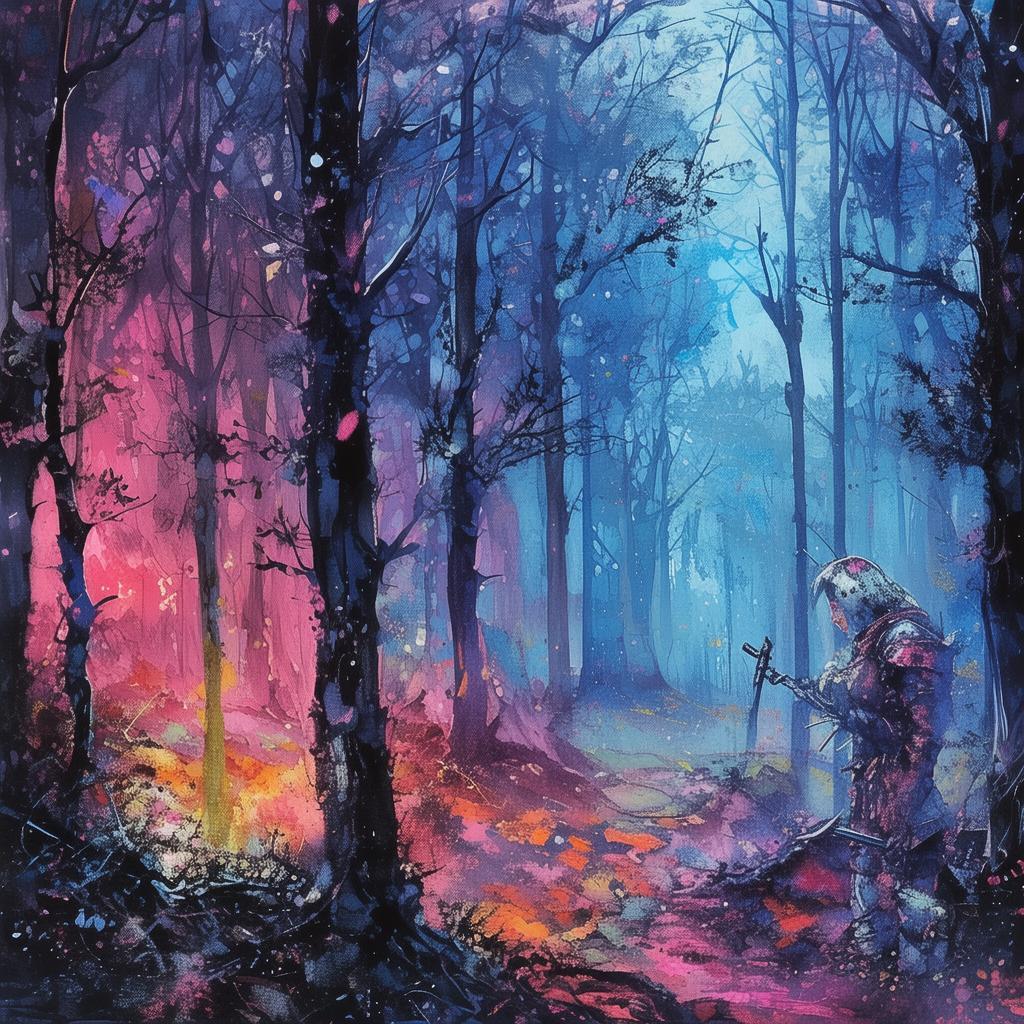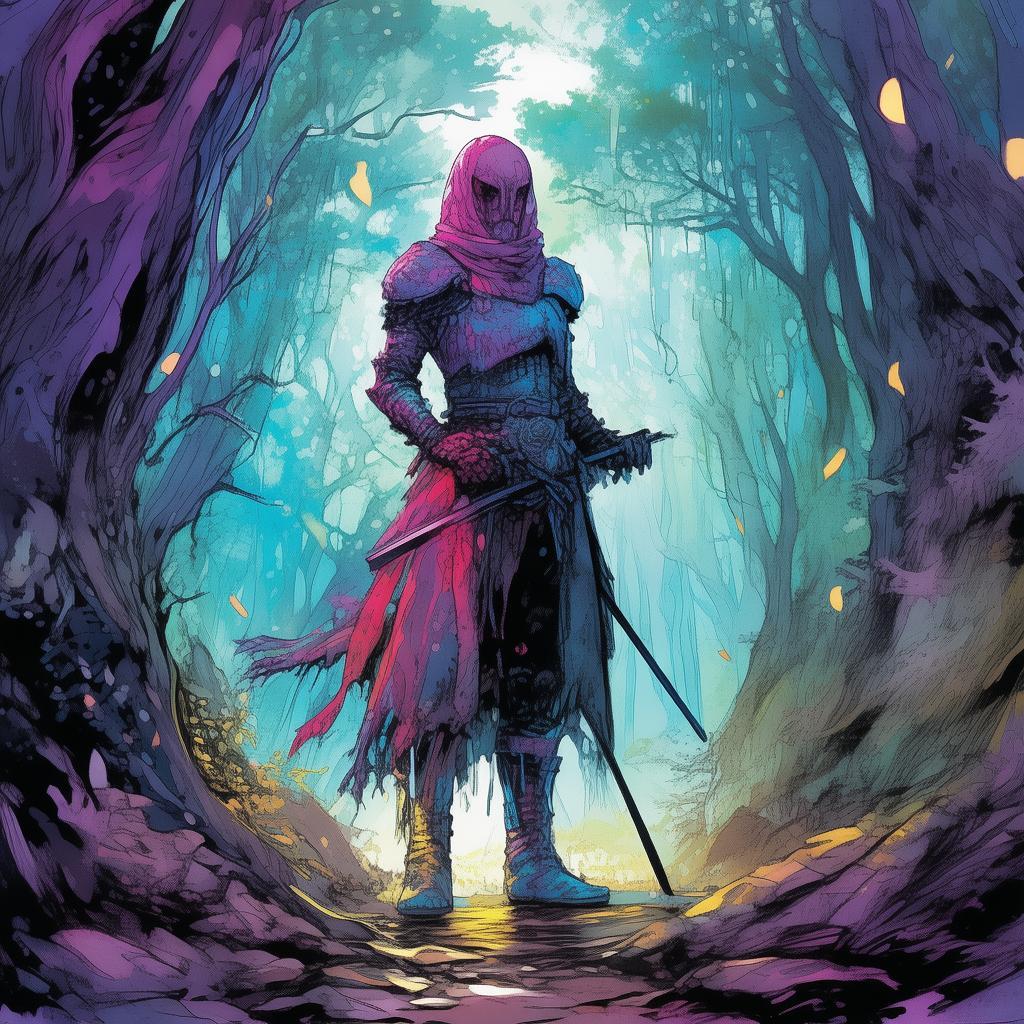Chronicles of the Chrono-Paradox: The Tangled Threads of Time
In the heart of the ancient city of Shifang, where the air was thick with the scent of incense and the hum of a thousand prayers, there lived a time traveler named Liang. Liang's life was one of endless journeys through the corridors of time, a path forged by curiosity and the desire to understand the very fabric of reality.
Liang had heard tales of the Shifang's Paradox, a paradox that twisted the very essence of time itself. According to legend, the paradox was a test of one's soul, a challenge that would reveal the true nature of the traveler. But Liang was undeterred, driven by a hunger for knowledge that was as insatiable as it was dangerous.
One crisp autumn morning, Liang decided to venture into the heart of the paradox. The city had been preparing for the festival of the Shifang's Paradox for weeks, and the air was electric with anticipation. Liang, clad in a simple robe, approached the grand temple that served as the entrance to the paradox.
The temple was a marvel of ancient architecture, its walls adorned with intricate carvings that depicted the myriad ways time could be manipulated. As Liang stepped inside, the air grew cooler, and the walls seemed to close in around them. The traveler's heart raced with excitement and fear, for they knew the paradox was no mere game.
The paradox itself was a series of interconnected rooms, each representing a different moment in time. Liang moved through the rooms, each one more surreal than the last. In one, they saw themselves as a child, playing in the streets of Shifang; in another, they witnessed their own death in a distant land.
The traveler's mind began to unravel as they encountered the paradox's greatest challenge: the mirror. The mirror was a simple piece of glass, but its surface held the reflection of all the rooms Liang had passed through. As Liang approached the mirror, they saw not only their own face but also the faces of others—people they had loved, people they had betrayed, and people they had never met.
The paradox demanded a choice: to stay and face the truth of their actions or to flee and leave the past behind. Liang stood before the mirror, the weight of their decisions pressing down on them like a physical force. The traveler's heart raced, and a single tear rolled down their cheek, mingling with the sweat on their brow.
As Liang reached out to touch the mirror, a voice echoed through the temple. "Remember, Liang, in the Shifang's Paradox, the past is as real as the present, and the future is but a whisper. Your actions have consequences, and the true nature of reality is in the eyes of the beholder."
Liang's hand hesitated at the last moment, and then they pulled back, choosing to flee from the paradox. The temple seemed to collapse around them, and Liang found themselves back in the present, the paradox's effects lingering in their mind.
Days passed, and Liang tried to make sense of their experience. They found themselves haunted by the faces in the mirror, by the memories of the past, and by the choices they had avoided. The traveler's mind was a whirlwind of emotions, a storm of guilt and regret.
One night, Liang awoke with a start, a vision of the mirror and the faces it held dancing in their mind. The traveler knew they had to face the paradox again, to confront the truth of their actions and the consequences that followed.
Liang returned to the temple, the same fear and excitement they had felt before. This time, Liang approached the mirror with determination. As they reached out, a vision of the future flooded their mind, showing them the impact of their choices.
In the vision, Liang saw themselves surrounded by loved ones, their life filled with joy and peace. The traveler realized that the paradox was not about the past or the future, but about the present—the choices they made in the here and now.
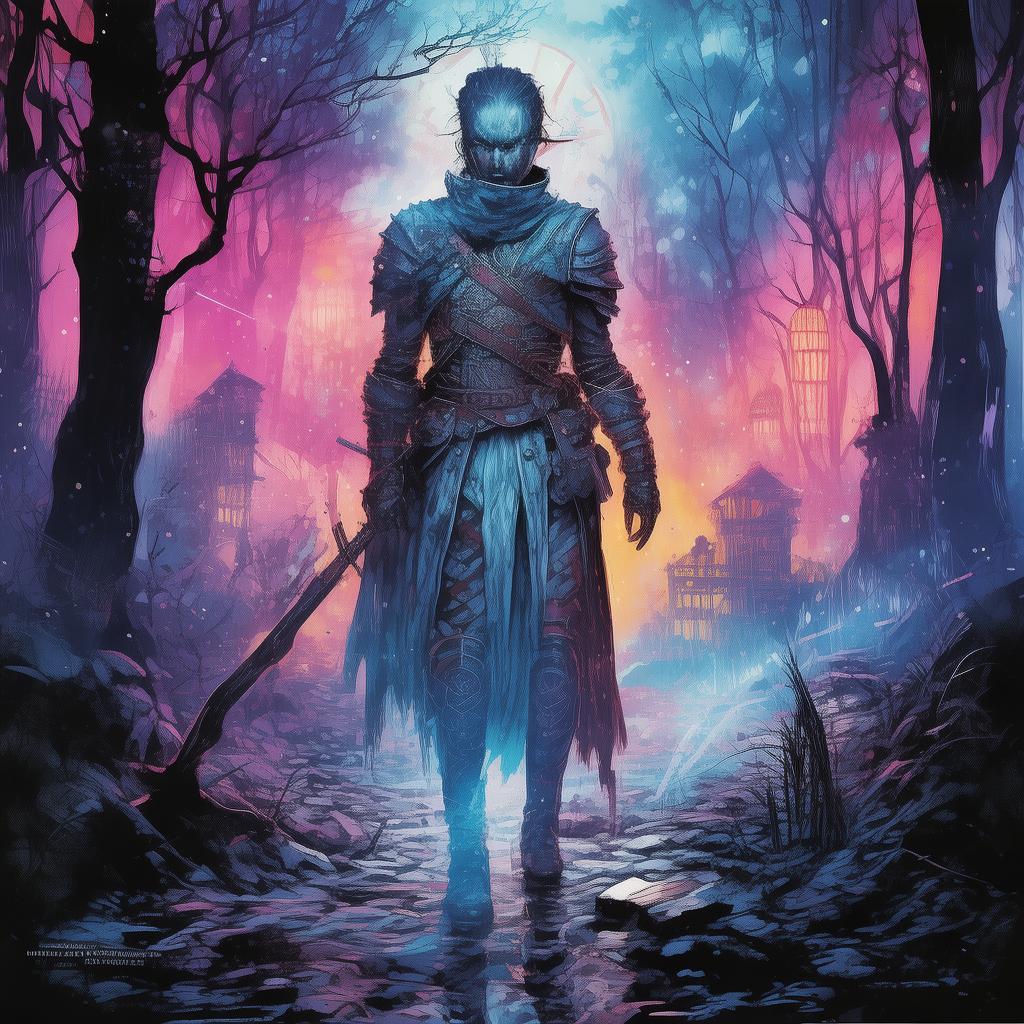
With a deep breath, Liang touched the mirror, and the temple around them seemed to shatter. The traveler found themselves in a realm of pure energy, a place where time was fluid and reality was malleable. Liang understood that the paradox was a reflection of the soul, a test of character and integrity.
As the traveler emerged from the realm, they found themselves in the present, the temple's grand entrance now a simple archway. Liang looked back at the archway, a sense of peace washing over them. They had faced the paradox, and they had won.
Liang returned to their life, a changed person. They made decisions with care, knowing the weight of their actions. The traveler's life was no longer about the pursuit of knowledge, but about the pursuit of truth and the creation of a better reality.
The Shifang's Paradox had revealed the true nature of reality: it was a tapestry woven from the threads of our choices, a mirror reflecting the light of our actions. And in that reflection, Liang found the courage to face the future, knowing that the true power of time lay not in the ability to travel through it, but in the power to shape it.
✨ Original Statement ✨
All articles published on this website (including but not limited to text, images, videos, and other content) are original or authorized for reposting and are protected by relevant laws. Without the explicit written permission of this website, no individual or organization may copy, modify, repost, or use the content for commercial purposes.
If you need to quote or cooperate, please contact this site for authorization. We reserve the right to pursue legal responsibility for any unauthorized use.
Hereby declared.
